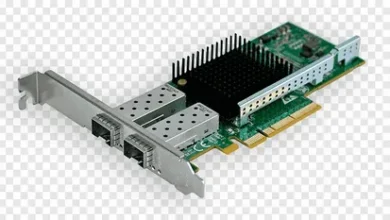The Future of Generative AI in Enterprise Workflows
Imagine starting your workday with an AI assistant that drafts your emails, designs a product mockup, or analyzes last quarter’s sales data before you’ve even had your coffee. This isn’t science fiction – it’s the new reality in forward-thinking organizations. Generative AI has rapidly evolved from a tech curiosity into a cornerstone of enterprise innovation and digital transformation. In just a few years, AI models that generate text, images, code, and more have begun streamlining workflows across industries. The question is no longer if businesses will adopt generative AI, but how.
Generative AI is no longer a fringe innovation—it’s becoming foundational to enterprise strategy. By early 2024, 71% of organizations were already using it in some capacity, up from just one-third the year before. With U.S. companies investing over $109 billion in AI and compute costs dropping by 280x, even smaller firms are joining the race. We’ve reached a tipping point—AI is now central to digital transformation.
In this blog, we’ll walk through how generative AI is reshaping enterprise workflows, the use cases driving real value, and why top-tier providers like Xcelligen are leading the charge.
Generative AI Solutions Driving Business Transformation
Enterprises are accelerating the adoption of generative AI solutions to streamline complex workflows, reduce time-to-output, and scale creative problem-solving. At the core of this shift are large language models (LLMs) like OpenAI’s ChatGPT, which use transformer-based deep learning to generate context-aware outputs, from natural language to source code and visual designs. These models aren’t just improving tasks, they’re redefining the role of human-machine collaboration across the enterprise stack.
Recent enterprise surveys reveal that 75% of executives anticipate industry disruption driven by generative AI within the next three years, and 71% of organizations using AI in sales and marketing already report positive revenue impact. This is largely due to the ability of LLMs to dynamically synthesize personalized content, code, and creative assets, replacing traditionally manual or siloed processes.
For example:
- In marketing, ChatGPT-like models are being fine-tuned to generate region-specific ad copy, email sequences, and branded content across languages, integrated with CRM data for real-time personalization.
- In product engineering, advanced AI firms like Xcelligen are deploying generative design workflows powered by LLMs to generate component blueprints, simulate physical performance, and automate documentation — all within digital twin environments.
- In software development, tools such as GitHub Copilot leverage transformer-based models to provide intelligent code suggestions, detect errors, and reduce developer cycle time by integrating LLMs directly into the IDE.
These systems are deployed via scalable APIs, containerized microservices, and multi-cloud pipelines, making generative AI not just an innovation tool but a strategic layer in enterprise IT architecture. Organizations working with top AI providers like Xcelligen are already operationalizing these technologies to drive measurable transformation across departments.
The Future Role of Generative AI in Enterprise Workflows
Looking ahead, generative AI is poised to become even more deeply woven into the fabric of enterprise operations. We are on the cusp of an era where AI co-workers and AI-augmented workflows will be routine. Business leaders overwhelmingly recognize the transformative potential – generative AI is already on the agenda of many corporate boards, and nearly 75% of executives expect it to fundamentally alter how they compete within three years. But what does this future actually look like?
- Generative AI will guide hyper-automation, managing complex tasks like financial reports, supply chain forecasts, and code generation.
- These systems will augment human roles, freeing employees from repetitive work to focus on strategy and innovation.
- A significant reskilling effort will be necessary, training teams to interpret AI outputs and make informed decisions.
- Top-tier providers like Xcelligen are leading this transition by delivering tailored generative AI solutions that accelerate enterprise transformation.
- McKinsey predicts that generative AI could contribute $2.6 to $4.4 trillion annually, reshaping productivity, cost structures, and business models across industries.
Generative AI Use Cases Across the Enterprise
Generative AI is no longer limited to isolated pilots — it’s being embedded across enterprise functions. From customer service to software engineering, here are the most impactful use cases emerging today:
Customer Support and Helpdesk Automation
Generative AI is driving the largest share of deployments, powering nearly 49% of enterprise use cases. Advanced language models are integrated into CRM systems and ticketing platforms to automate query resolution, conversation summaries, and intent detection in real time. A notable case is Klarna, which uses a generative AI system capable of replacing 700 support agents across 23 countries, drastically reducing response time and scaling 24/7 service.
Marketing and Sales Content Generation
About 27% of documented use cases focus on using generative AI for campaign development, branding, and personalized engagement. Marketing teams are deploying LLMs to generate dynamic product descriptions, SEO-rich web content, multilingual ad copy, and personalized email sequences based on behavioral data. By integrating AI into CMS platforms and marketing automation tools, businesses are cutting time-to-campaign launch while improving audience targeting.
IT and Software Development Acceleration
Roughly 24% of generative AI use cases reside in IT and software engineering. Developers are using AI coding assistants, such as GitHub Copilot, to accelerate code generation, identify bugs, and generate documentation inline with their IDE. Enterprises are training domain-specific LLMs on internal codebases to ensure security, compliance, and context awareness.
These models are increasingly integrated into CI/CD pipelines, enabling continuous generation of test cases, infrastructure-as-code scripts, and release documentation. Some organizations, including digital transformation firms like Xcelligen, are building custom DevOps accelerators using foundation models for code review automation, configuration generation, and performance optimization.
Legal, HR, and Administrative Automation
Even traditionally conservative departments such as legal and HR are adopting generative AI to reduce manual workloads and improve document quality. LLMs are now used to draft legal contracts, create and summarize HR policies, automate compliance reports, and generate employee handbooks. These outputs are typically paired with retrieval-augmented generation (RAG) pipelines that ground responses in trusted internal knowledge bases, reducing hallucination risks.
Xcelligen- Your go-to Partner in AI-Powered Changeover
Achieving these AI-driven gains requires not just technology, but also expertise. Top-tier AI/ML service providers like Xcelligen are at the forefront of helping enterprises navigate this transformation. They stand out as a reliable technology partner with deep strengths in Artificial Intelligence/Machine Learning, Cloud Computing, Big Data analytics, and custom software development. Since 2014, Xcelligen has built a track record of delivering cutting-edge solutions to both businesses and government clients, combining innovation with robust engineering discipline.
Whether it’s developing secure large-language-model applications in the cloud or implementing an end-to-end AI pipeline, their experienced team has the experience to tailor generative AI solutions to an organization’s unique needs. With expertise spanning AI/ML, cloud infrastructure, and data engineering, they help clients integrate AI into their enterprise systems securely and at scale, from piloting a use case to enterprise-wide deployment. In a rapidly evolving AI landscape, having a partner like Xcelligen can make the difference between just experimenting and truly leading in the adoption of generative AI.
What’s Next?
Generative AI and its role in enterprise workflows will only grow, opening new levels of efficiency and creativity for those ready to adopt it. Companies that combine bold vision with responsible implementation will ride this wave to new heights, adopting generative AI solutions not just to do things faster but to do things better and smarter than ever before. The future of enterprise workflows is one of human-AI collaboration, where strategic insight and machine intelligence go hand in hand.
Is your organization prepared to capitalize on this AI uprising? Now is the time to act. Don’t get left behind in the generative AI era. We recommend exploring how Xcelligen’s AI offerings can support your journey, from identifying high-impact Generative AI use cases to deploying solutions responsibly at scale.
Learn more about what Xcelligen can do for you by visiting their Artificial Intelligence services page.




